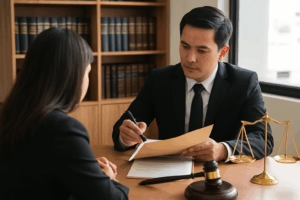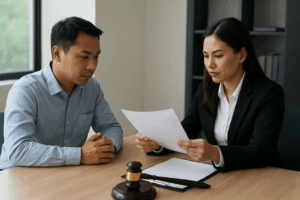Thailand, with its vibrant culture and rich history, attracts millions of tourists and expatriates each year. While the Land of Smiles is known for its warm hospitality, breathtaking landscapes, and delicious cuisine, it’s crucial for foreigners to understand and respect the local customs and laws to ensure a positive and trouble-free experience. In this guide, we’ll delve into the significance of cultural sensitivity and awareness of Thai laws for those exploring this captivating Southeast Asian nation, with valuable insights from Siam Center Law Group.
1. Cultural Sensitivity in Thailand:
Thai Greetings and Etiquette: In Thailand, greetings and respect for elders are highly valued. The traditional Thai greeting, known as the “wai,” involves a slight bow with the palms pressed together. Understanding this gesture and reciprocating it appropriately can go a long way in fostering positive interactions.
Respecting the Monarchy: Thailand holds its monarchy in high regard. Criticizing or disrespecting the royal family is a serious offense that can result in legal consequences. Foreigners should be mindful of conversations and actions related to the monarchy.
2. Legal Considerations for Foreigners:
Visa Regulations: One of the initial legal aspects for foreigners is navigating Thailand’s visa regulations. Whether you’re a tourist, expatriate, or business professional, understanding the different visa types, application processes, and renewal requirements is crucial for a seamless stay.
Property Ownership Laws: Foreigners often face restrictions on land ownership in Thailand. While there are legal avenues such as long-term leases and condominium ownership, it’s essential to be aware of the specific laws governing property rights for non-Thai nationals, with guidance from a reputable Siam Center Law Group.
Work Permits and Business Registration: For those looking to work or start a business in Thailand, obtaining the necessary work permits and adhering to business registration requirements is imperative. Violating these regulations can lead to legal complications and jeopardize one’s stay in the country. A reliable Siam Center Law Group can provide expert guidance through these intricate processes.
3. Navigating Local Customs:
Understanding Buddhism: Thailand is predominantly a Buddhist country, and understanding the basics of Buddhism can greatly enhance cultural sensitivity. Temples are sacred places, and appropriate attire and behavior are expected when visiting these religious sites.
Eating Etiquette: Thai cuisine is renowned worldwide for its flavors and variety. When dining in Thailand, understanding basic eating etiquette, such as using a spoon and fork, not pointing your feet at people, and not wasting food, demonstrates respect for local customs.
4. Staying Informed:
Local Laws and Regulations: Laws and regulations can change, and staying informed is crucial for foreigners. Regularly checking updates from reliable sources or consulting legal professionals, like a reputable Siam Center Law Group, can help ensure compliance with current laws and regulations.
Embassy and Consulate Assistance: In case of emergencies or legal issues, it’s beneficial to be aware of your home country’s embassy or consulate locations in Thailand. They can provide assistance, guidance, and support when needed, and a knowledgeable Siam Center Law Group can offer additional legal support.
Conclusion:
Thailand’s allure extends beyond its picturesque landscapes; it lies in the warmth of its people and the richness of its culture. For foreigners, embracing and respecting Thai customs and laws is not just a legal obligation but a gateway to a more fulfilling and harmonious experience in this enchanting country. By staying culturally sensitive and legally informed, visitors and expatriates can forge positive connections and create lasting memories in the Land of Smiles, with the professional guidance of Siam Center Law Group ensuring a smooth legal journey.
Remember, this guide is just a starting point, and individuals should conduct further research and seek legal advice from a reputable Siam Center Law Group for their specific circumstances. Thailand welcomes those who appreciate its culture and adhere to its laws, ensuring a rewarding and trouble-free experience for all.
Contact : Siam Center Law Group by calling +66(0) 2 648 5041, +66(0) 2 648 5042





